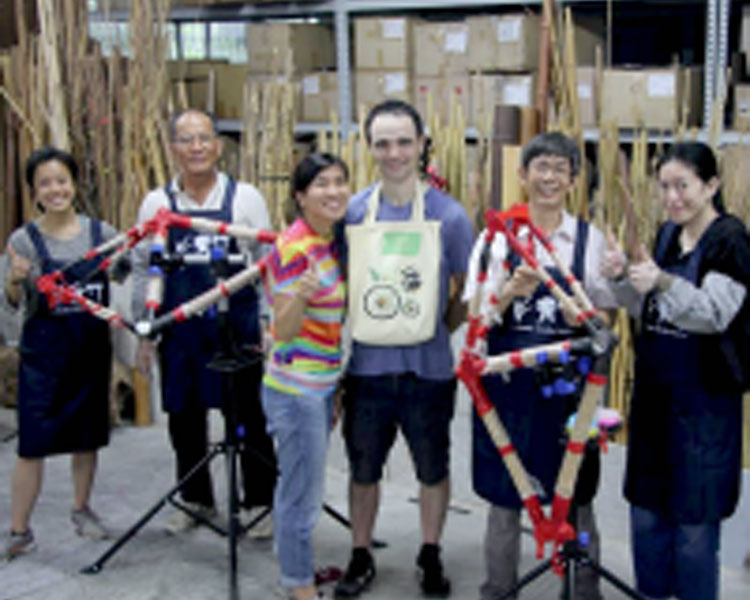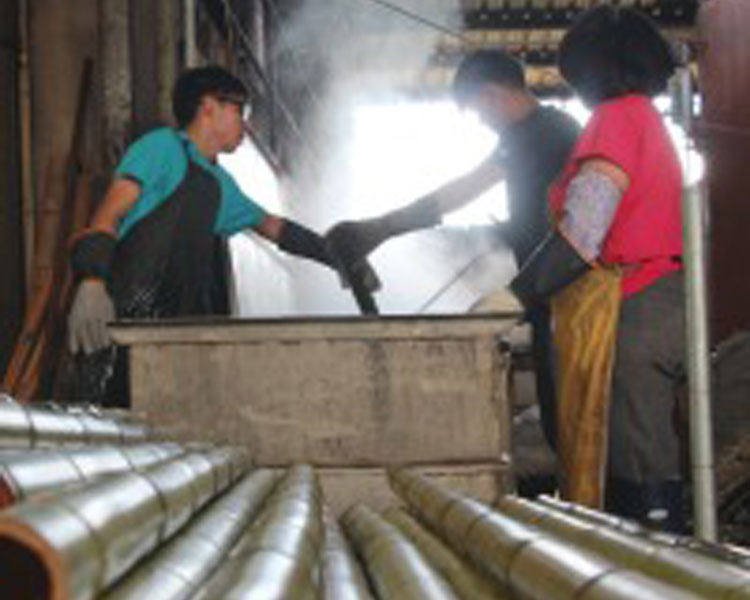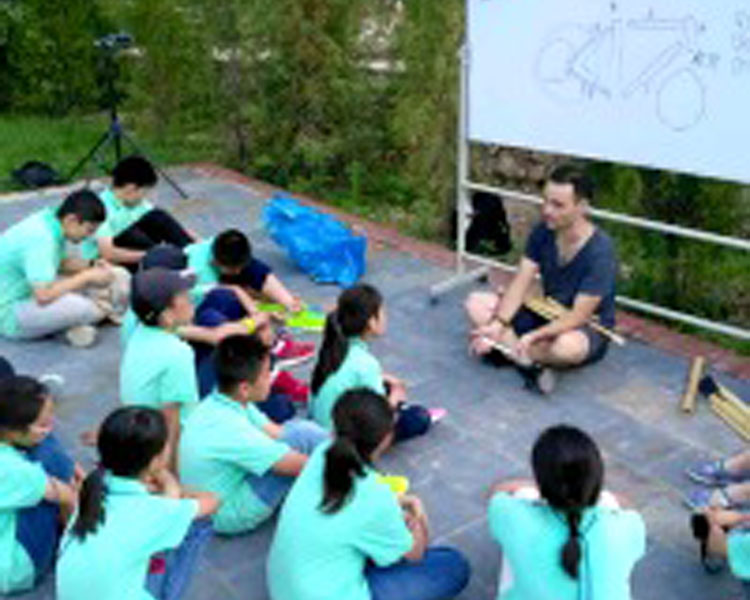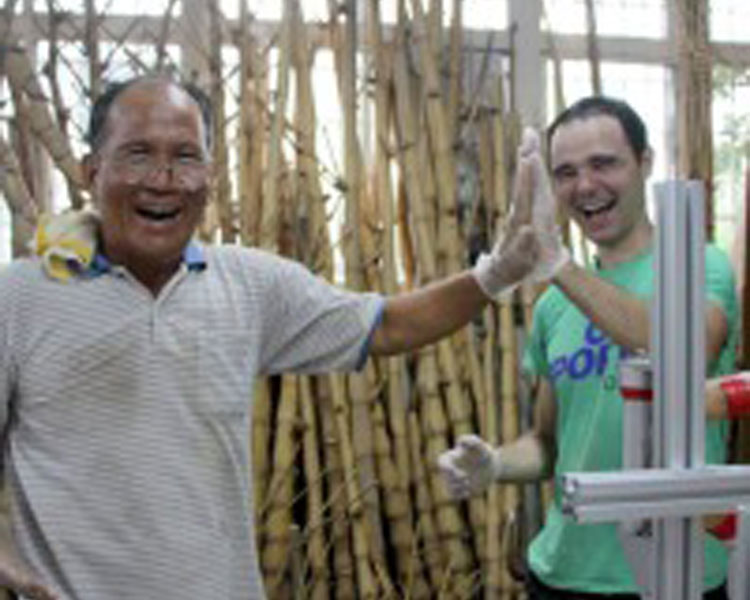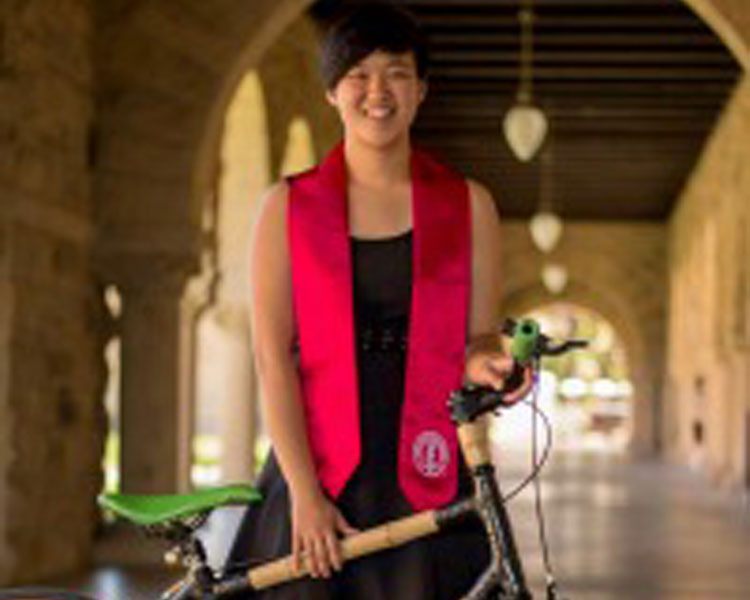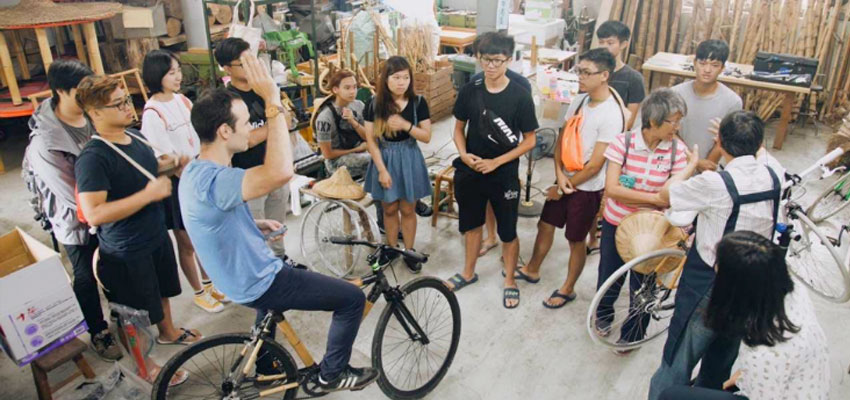
“The summer in Taiwan and Beijing flashed by, but what we accomplished seemed like it should’ve taken years: we established a Taiwan-based community workshop, built 20+ bamboo bicycles in Beijing, and taught 400+ students how to assemble their own bikes!”
“Guess what is the primary use of industrial bamboo in Taiwan?” Teacher Chen asked. As one of the leading experts of bamboo in Taiwan, Teacher Chen had initially earned his renown as an artist carving beautiful designs into the sides of bamboo crafts. Over the past 20 years, he established and developed The Bamboo Culture Park in Zhushan Village (literally meaning “bamboo mountain village”). His bamboo center hosts hundreds of species of bamboo, several bamboo buildings (designed and made locally), and every bamboo product you can imagine. From architecture to light fixtures to beds to sheets to shampoo to ice cream to back scratchers – if you could imagine it, Teacher Chen probably has it at his Bamboo Culture Park. However, today we had left his bamboo compound to explore the neighboring bamboo companies, and looking around the bamboo stockyard we were standing in, I had no idea which product was the primary product of Zhushan.
With the help of the MIT Undergraduate Fund and a D-Lab UGC Fieldwork Grant, our Bamboo Bicycles Beijing team had arrived in Taiwan to set up a bamboo bike workshop in this village and to learn more about bamboo crafts. Bamboo Bicycles Beijing has been a project client for students in two MIT classes, D-Lab: Design and D-Lab: Mobility, and we were working on how to not only make better bicycles but also how to help set-up community bamboo bicycle workshops. David Wang (MIT 2018), Karen Lee (Stanford 2017), Andrea Zhu (Brown 2017), and Marshall Cao (Hampshire College 2019), had spent a time researching how to set up bamboo bike workshops so that it would help feed back into the community. This was our chance to give it a shot in Zhushan, Taiwan before we headed to the Beijing workshop.
For this to be the primary market for Taiwan’s bamboo seems quite incongruous with its past. Taiwan has a vast tradition of bamboo industry which has included all kinds of crafts, architecture, and foods. Yet, in recent decades, both the market and national policies have pushed the material to the fringe of the economy. Zhushan Village has suffered as its craftspeople struggle to keep up with an increasingly online marketplace, production of metals and plastics offers easier standardization for mass production, and the cultural aesthetic has moved away from this fast-growing grass. While recently bamboo has been heralded as a highly-renewable, carbon-negative material, Mr. Chen and his organization face a considerable challenge to upgrade their “bamboo mountain village” into a production and cultural center that is immediately relevant to today’s consumers and manufacturers. With 20 years of dedication to bringing bamboo back to the forefront, Teacher Chen has not yet overcome this challenge.
We hoped that we could use the summer working with The Bamboo Culture Park working to develop a new strategy for the village that would begin to resonate with the younger generation of both consumers, designers, and employees. After taking stock of the immense intellectual assets in Zhushan, it became clear the challenge was to change the paradigm by which these assets create value for the community. Whereas previously local craftspeople closely guarded their fabrication techniques, today’s economy requires openness and agile communication. Rather than having closed workshops that discourage people to visit and follow Zhushan, we developed a strategy that would make this bamboo mecca more visible and open to the rest of the country.
We developed a social media strategy that catered to a younger generation that is interested in “DIY” and experiential consumption by teaching bamboo bicycle making. With their decades of bamboo craftsmanship, they learned to make a bamboo bicycle extremely fast. With their expertise, we began setting up an open DIY bamboo bike workshop at the Bamboo Culture Park. Mr. Liu would be responsible for teaching people to make bamboo bicycles. The team planned to build 30 bamboo bikes and begin involving local materials, craftspeople, and tools to see if this could turn into a community spark that would spur more opening up about the village’s abundant resource and depth knowledge. We left Taiwan feeling optimistic that bamboo will be used for more than banana tree poles as the community begins opening up to a new kind of market.
After establishing the workshop in Zhushan, the team traveled to the client’s base workshop in Beijing where everyone made their own bamboo bicycle and participated in leading bike mechanic workshops for youth in the countryside outside Beijing. In addition, we held regular bamboo bicycle community events in which we helped to share how bamboo bikes are made by individuals using a local material, not by factories using carbon-intense materials from far away. Andrea spent a great deal of time interviewing Beijing’s diverse bamboo bicycle community makers and published an anthology through BBB. Karen spent time developing a “How to Pack You Bike” guidebook for the many bamboo bike makers in Beijing who want to take their bikes on planes. And, David and Marshall spent most of their time helping school children learn to assemble their own bikes. The summer in Taiwan and Beijing flashed by, but what we accomplished seemed like it should’ve taken years: we established a Taiwan-based community workshop, built 20+ bamboo bicycles in Beijing, and taught 400+ students how to assemble their own bikes!
We’re very appreciative to MIT UGC and MIT D-Lab for allowing the whole team to have these adventures, and we look forward to returning as soon as possible!
